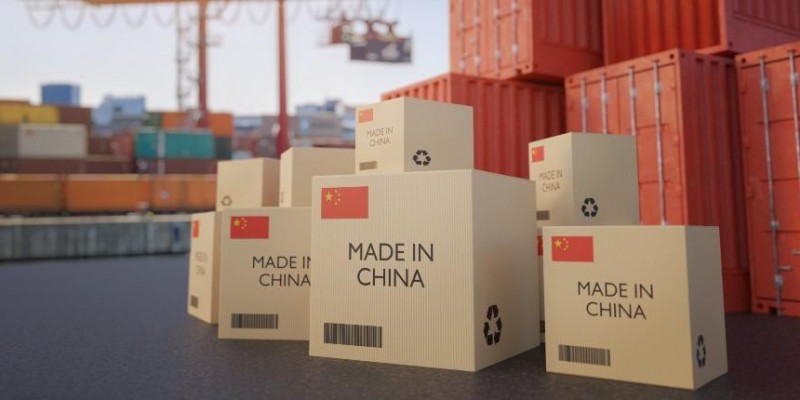
Starting to buy products from China can be a lucrative venture, but it requires careful planning, research, and execution.
If you're interested in buying products from China, especially for business purposes, there are several steps you can take to get started.
- Market Research - Identify the products you want to buy and sell. Conduct thorough market research to understand demand, competition, and potential profit margins. Consider factors like import regulations, target market preferences, and trends.
- Find Suppliers - Look for reputable suppliers in China. You can start by searching online marketplaces like Alibaba, Made-in-China, or Global Sources. Additionally, attending trade shows or networking with other business owners can help you find reliable suppliers.
- Verify Suppliers - Once you've identified potential suppliers, conduct due diligence to verify their credibility. Check their business licenses, certifications, and client references. You can also consider hiring a third-party inspection service to ensure product quality.
- Negotiate Terms - Reach out to potential suppliers and negotiate terms such as pricing, payment methods, shipping, and lead times. Be clear about your expectations and establish a good working relationship.
- Sample Testing - Before placing a large order, request product samples to evaluate quality, design, and functionality. This allows you to make informed decisions and ensure that the products meet your standards.
- Understand Import Regulations - Familiarise yourself with import regulations and customs requirements in your country. This includes tariffs, taxes, labelling requirements, and any restrictions on specific products.
- Arrange Shipping and Logistics - Determine the most cost-effective and efficient shipping method for your products. You can choose between air freight, sea freight, or courier services depending on factors like volume, urgency, and budget.
- Manage Supply Chain - Establish a system for managing your supply chain effectively. This includes inventory management, order tracking, and communication with suppliers to ensure timely delivery and replenishment.
- Legal and Financial Considerations - Consider legal and financial aspects such as contracts, payment terms, and intellectual property protection. Consult with legal and financial experts if needed to ensure compliance and mitigate risks.
- Build Relationships - Cultivate strong relationships with your suppliers based on trust, transparency, and mutual respect. Good communication and regular feedback can help strengthen these relationships and lead to long-term success.
By following these steps and staying informed about market trends and regulations, you can increase your chances of success in importing from China.
For individuals or businesses who have never imported products from China but are interested in starting, there are several common concerns to consider.
Quality Control
Ensuring product quality can be a significant concern, especially when dealing with suppliers overseas. Without proper oversight, there's a risk of receiving substandard or defective products. Implementing quality control measures, such as requesting samples, conducting inspections, and building relationships with reputable suppliers, can help mitigate this risk.
Communication Barriers
Language and cultural differences can pose challenges in communication with Chinese suppliers. Misunderstandings or miscommunications may occur, leading to delays or errors in orders. Using translators or hiring agents who are fluent in both languages can help bridge this gap and facilitate effective communication.
Import Regulations and Compliance
Navigating import regulations and ensuring compliance with customs requirements can be daunting for newcomers. Lack of familiarity with import tariffs, product labelling regulations, and documentation processes may result in unexpected costs or delays at customs. Consulting with import/export professionals or seeking guidance from government agencies can provide clarity on regulatory requirements.
Payment Security
Concerns about payment security and fraud are common when dealing with unfamiliar suppliers, especially online. Sending payments to suppliers without proper verification or safeguards can result in financial losses or scams. Using secure payment methods, such as escrow services or letters of credit, can help protect against fraudulent activities.
Supply Chain Disruptions
Disruptions in the supply chain, such as delays in production or shipping, can impact the timely delivery of products. Factors like natural disasters, political instability, or transportation issues may disrupt operations and affect business continuity. Diversifying suppliers, maintaining buffer inventory, and having contingency plans in place can help mitigate these risks.
Intellectual Property Protection
Protecting intellectual property rights, including trademarks, patents, and designs, is crucial when sourcing products from China. Without proper safeguards, there's a risk of counterfeiting or unauthorized reproduction of proprietary products. Registering intellectual property assets and implementing contractual agreements with suppliers can help safeguard against infringement.
Cultural Differences and Business Etiquette
Understanding cultural norms and business practices in China is essential for building successful relationships with suppliers. Lack of awareness of cultural nuances or etiquette may lead to misunderstandings or strained interactions. Taking the time to learn about Chinese culture, customs, and business etiquette can facilitate smoother communication and foster positive relationships.
Addressing these concerns requires careful planning, research, and diligence. Seeking guidance from experienced importers, consulting with professionals, and leveraging available resources can help mitigate risks and navigate the complexities of importing products from China effectively.
Seeking assistance with sourcing or managing your supply chain?
Whether you're just beginning to explore importing from China or you're already established in business and looking for support in supply chain management, we're here to assist you. Reach out to us and schedule a complimentary consultation today.
Email: paula.fang@plf-consulting.com
Phone: +44 (0)7873909939
- Log in to post comments
Attract new business
Access promotional opportunities to raise your business profile and find new business.
